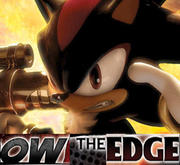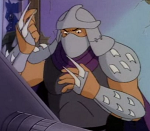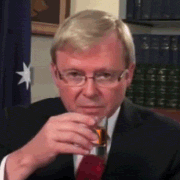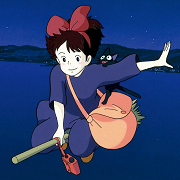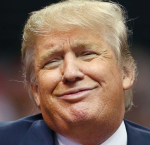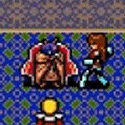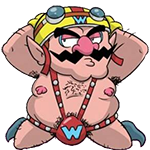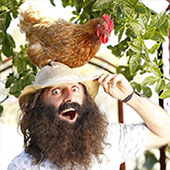|
Its funny because Queensland rail.
|
|
|
|

|
| # ? Jun 9, 2024 13:03 |
|
Mad Katter posted:I thought it was funny because Rize Up Australia is unfortunately simar to Rise Up Australia, the National Socialist party Your summary was a tad long, so I shortened it. You're welcome to shorten it further if you like.
|
|
|
|
Y'all forgot that it's okay for someone to feel that the postal survey is a stupid pointless exercise because we think it is a stupid pointless exercise too. The fact that it is going on its the fault of the Liberals, who are wasting all this time and money because they are too chickenshit to do their own jobs. So the best way to respond is to send them a huge "gently caress you" in the form of an overwhelming yes vote to show that their stupid games aren't appreciated and they just need to get marriage equality sorted so we can just move on. If anyone tells you that they don't care either way then tell them that the whole thing _is_ stupid and voting yes is the best way to get it dealt with.
|
|
|
|
Amethyst posted:LOL!!!! stupid IDIOT took part in a domestic violence awareness campaign! Thought you doxed me then I counted the chins, few.
|
|
|
|
Recoome posted:excuse me but I sexually identity as an apache attack helicopter, when will you respect my rights I sexually identify as a jeep grand cherokee, please respect my heritage
|
|
|
|
The recently released Chinese students recording of the argument he has with his teacher about using the word Taiwan illustrates how issues of sovereignty and territoriality can be very emotional for Chinese students. In the video, the Chinese student says, in a calm voice: You have to consider all the students Chinese students are one third of this classroom. You make us feel uncomfortable. He goes on to argue, You have to show your respect. The discussion becomes somewhat unclear, but it sounds like the student then says, It really makes us feel terrible. His next comment sounds like he is getting frustrated and upset: Why do you always keep saying that? Taiwan! As if it is a separate country. The teacher responds: From where I am standing, Taiwan is a separate country. If you feel offended, that is your opinion. The student replies: You should consider our feelings. You dont have to mention it many times, and like hurt us once again. He finishes with, It is our bottom line, and you keep touching on it. It is not clear from the video exactly what the teacher said that caused the student such offence; however, Newcastle University said in a statement that the lecturer was using material from a Transparency International report which used the term countries to describe both countries and territories. What is immediately notable is that while the student is not satisfied with his teachers position, he does not even attempt to deploy what he may consider to be relevant facts or rational counter-arguments to support his own case. He is not trying to draw on his understanding of history, or setting out what he might see to be the relevant details of the one country two systems arrangement that currently governs the relationship between the mainland and the island. Rather, the student repeatedly appeals to emotion, in particular, how referring to Taiwan as a separate country hurts the feelings of Chinese students. The mantra of hurting the feelings of the Chinese people is not new. This emotionally charged phrase is used regularly in the Chinese press, with varying degrees of vitriol when, for example, a foreign politician meets with the Dalai Lama. In another case, singer Bob Dylan was warned not to hurt the feelings of the Chinese people when he toured China before he had even arrived in the country. In a similar vein, my Chinese friends and colleagues would tend to react with great emotion if they felt that China was being criticised by an outsider even in relation to topics like the weather or the traffic. Research by Victor Mair in 2011 into this phenomenon found that an internet search on the phrase hurt the feelings of the Chinese people resulted in 17,000 hits, as compared with replacing the Chinese people with the Japanese people (the next many hits, at 178) or 17 other nationalities which came up with zero hits. In an earlier search on google.cn of the terms humiliation or bullying (qifu: 欺负) and disrespect or looking down (kanbuqi: 看不起), anthropologist and historian Pal Nyiri found 623,000 entries with the term qifu Zhongguo (欺负中国, bullying China) and 521,000 with kanbuqi Zhongguoren (看不起中国人, looking down on Chinese people). This tendency to be easily offended taps into the narrative of national humiliation which many Chinese subscribe to the idea that the outside world deliberately carved China up during the opium wars of the mid-1800s, leaving it weak and vulnerable. President Xi Jinpings China Dream of rejuvenation is a direct response to this view. Some Chinese people have explained to me that the tendency to take offence when an outsider comments on China in a way they perceive as a criticism stems from the idea the country and the family are conceptually conflated such that they are understood as deserving equal loyalty. In a conversation with one Chinese scholar on the matter, I said that when Australian government policy was criticised internationally, it generally did not make Australians feel hurt in the same way Chinese people seemed to react when China was criticised. He said, Because, you know, so many (western) people dont understand how the relationship between people and state in China is like a family! He explained how even the Chinese word for country, guo jia, is made up of the character for country/state, and the character for family (国家). The Chinese students I taught in Beijing also felt very strongly that the idea of guojia, or country-family, expressed the relationship between people and the state in China very well. In their view, the state was an extension of the family, and should therefore be accorded all the obligations and loyalty traditionally due to family. My students felt strongly that while it may be acceptable for them or other Chinese people to comment on shortcomings or mistakes of the Chinese nation-state, it was entirely inappropriate for those outside to do so. Students took external criticism of China very personally, explaining their emotional response in terms of being offended or of experiencing hurt feelings. Wrong China policy: White House calls Xi Jinping president of Taiwan Read more Officially, the status of Taiwan is a core interest for China. That is to say, most Chinese consider the idea that Taiwan is an indisputable part of China is sacrosanct. They learn it at school, and in almost everything they see and hear as they grow up. To them, Taiwan is a family member; that is why discussions about its sovereignty tend to be emotional. Many Chinese students find it difficult to articulate why they feel the way they do about Taiwan particularly because they have not had much training in debating or critically arguing a point. And they find it impossible to fathom that foreigners cannot understand their position on Taiwan. There is another fascinating question the release of this video raises: why did the student record and publicise this moment? What was he trying to achieve? The Chinese students lecturer was right to say that his course could not cater to any particular group, and that navigating different views and opinions is an integral part of the learning experience. But it is very difficult for many Chinese students to accept that the Taiwan issue is in any way a matter of opinion. Dr Merriden Varrall is the director of the East Asia Program at the Lowy Institute.
|
|
|
|
gently caress Chinese students feelings imo
|
|
|
|
Taiwan number one.
|
|
|
|
yeah sorry but the plebiscite is going to fail, guys the australian swing voter is retarded enough to uncritically accept "if you allow same sex marriage, then the gays will turn your son trans by making it illegal for them to wear pants". another victory for prime minister dutton.
|
|
|
|
BBJoey posted:yeah sorry but the FTFY. A 122m survery. Should have just put mail in tear-outs in issues of popular newsagent magazines. Wait nobody buys those anymore lol
|
|
|
|
Lid posted:The recently released Chinese studentâs recording of the argument he has with his teacher about using the word âTaiwanâ illustrates how issues of sovereignty and territoriality can be very emotional for Chinese students. loving triggered snowflake idiot imo
|
|
|
|
Plebiscite on next Logies location, I vote West coast of Tasmania.
|
|
|
|
Plebiscite on whether Taiwan is a country just to see some fuckwit nationalist man child tears
|
|
|
|
Impressed that Chinese males get cucked by the mere mention of Taiwan.
|
|
|
|
I would blow Dane Cook posted:Plebiscite on next Logies location, I vote West coast of Tasmania. There was a plan to send Jewish refugees there once.
|
|
|
|
BBJoey posted:yeah sorry but the plebiscite is going to fail, guys Australia will finally be confirmed as the worst of the ex-british empire.
|
|
|
|
hooman posted:Australia will finally be confirmed as the worst of the ex-british empire. Gonna be tough to beat Apartheid South Africa. But gently caress we are trying our best to beat it.
|
|
|
|
lmao white australian dudes get cucked by the mere mention of "aboriginal genocide" so there's one
|
|
|
|
Client liaison is on in twenty minutes and I have nothing to throw at Tom Tilly
|
|
|
|
I would blow Dane Cook posted:Client liaison is on in twenty minutes and I have nothing to throw at Tom Tilly Shoes.
|
|
|
|
hooman posted:Shoes. They're too expensive.
|
|
|
|
I would blow Dane Cook posted:Client liaison is on in twenty minutes and I have nothing to throw at Tom Tilly You could throw some bad opinions his way. He likes that
|
|
|
|
Pair of Nike Jordans: $210 Client Liason Tickets: $39.80 Uber to Gig: $16 Overpriced Beer: $12 Hitting Tom Tilley in his stupid face with a shoe: Priceless.
|
|
|
|
Lol Chinese nationalism is hilariously thin skinned, quick someone tell the students the Chinese Nationalists fought better than the Communists against the Japanese! Btw I just saw the new IT movie and every time pennywise was on screen I saw Tony Abbott.
|
|
|
|
You Am I posted:Gonna be tough to beat Apartheid South Africa. Don't we get points for the White Australia policy and the stolen generation. Also, legally not recognising Aboriginals as people, but rather fauna?
|
|
|
|
Konomex posted:Also, legally not recognising Aboriginals as people, but rather fauna? That's actually a myth.
|
|
|
|
'Department of Aborigines and Fisheries' isn't much better.
|
|
|
|
Tarantula posted:Lol Chinese nationalism is hilariously thin skinned, quick someone tell the students the Chinese Nationalists fought better than the Communists against the Japanese! Eh, this is pretty debatable, there was massive variation in quality and effectiveness within both Nationalist and Communist forces. Since it suits the CCP to downplay internal divisions in favour of stirring up nationalist, anti-foreign sentiment, the KMT is now more portrayed as the first generation of patriotic precursor revolutionaries to the CCP rather than civil war enemies, so it wouldn't upset Chinese people nearly as much as Taiwanese independence or freeing Tibetans etc.
|
|
|
|
Slight veer-off: Anyone got any experience with ME Bank? I guess it's an industry superfund credit union, but since it's the SDA that was emailing me about them it makes me worry if they're actually any good. Also their internet banking seems to be down , good first impression so far. Still I'd like to replace my ANZ accounts eventually, so, thoughts? EDIT: It's been almost a decade since I moved here but I'm still claiming "american" as a defense for not knowing poo poo.
|
|
|
|
ModernMajorGeneral posted:Eh, this is pretty debatable, there was massive variation in quality and effectiveness within both Nationalist and Communist forces. Oh I dont know about that. Chinese TV is still had plenty of communist vs nationalist TV shows on. I certainly got the impression they were still quite the evil from my spells over there. In fact Cinese TV is on of the most militaristic Ive ever watched. I lost count the number of war period shows that were on at any given time. And kids programming was all on a militaristic bent. Although no tits on chinese tv, plenty of fucks and shits were heard.
|
|
|
|
ModernMajorGeneral posted:Eh, this is pretty debatable, there was massive variation in quality and effectiveness within both Nationalist and Communist forces. Huh I had no idea they had changed their attitude to the KMT, kinda thought that would never happen. Still, "hurt Chinese feelings" will always be funny.
|
|
|
|
Tarantula posted:Huh I had no idea they had changed their attitude to the KMT, kinda thought that would never happen. Still, "hurt Chinese feelings" will always be funny. I get the impression the KMT is still evil, but they're revising their earlier versions of history where the KMT was always evil into a vision where the early KMT was good but lost its way.
|
|
|
|
See you soon in the city, Brisgoons
|
|
|
|
meteor9 posted:Slight veer-off: Anyone got any experience with ME Bank? I guess it's an industry superfund credit union, but since it's the SDA that was emailing me about them it makes me worry if they're actually any good. Also their internet banking seems to be down , good first impression so far. Still I'd like to replace my ANZ accounts eventually, so, thoughts? ME Bank hosed my friend over by losing a substantial amount of her money when she needed it while overseas. Took her a month of chasing them up daily to get it back.
|
|
|
|
The best part about Australian Journalism is when people go "Bill Shorten shouldn't get too comfortable! Another 9/11 will happen any moment! Remember Kim Beazley!"https://www.brisbanetimes.com.au/world/north-america/bill-shortens-biggest-challenge-is-to-make-himself-more-likeable-20170908-gydbcl.html posted:
Because people clearly think of Malcolm Turnbull as a protector.
|
|
|
|
"We simply don't know" translates to "We know, but we're not allowed to say it. Vote Liberal."
|
|
|
|
|
meteor9 posted:Slight veer-off: Anyone got any experience with ME Bank? I guess it's an industry superfund credit union, but since it's the SDA that was emailing me about them it makes me worry if they're actually any good. Also their internet banking seems to be down , good first impression so far. Still I'd like to replace my ANZ accounts eventually, so, thoughts? Didn't ME Bank (used to be Member's Equity; I was with them when I was 12) change into Bank Australia?
|
|
|
|
You Am I posted:Gonna be tough to beat Apartheid South Africa. I know the Nationals are unremitting goanna guano but, http://www.abc.net.au/news/2017-09-10/nationals-vote-against-adopting-burka-ban/8889768 Accidentally doing the right thing? That it came to a vote is actually pretty hosed up but....
|
|
|
|
tithin posted:"We simply don't know" translates to "We know, but we're not allowed to say it. Vote Liberal." Remember when we used to have journalists in the Canberra press gallery? Neither do I. That place needs a good flooding.
|
|
|
|

|
| # ? Jun 9, 2024 13:03 |
|
Schlesische posted:Didn't ME Bank (used to be Member's Equity; I was with them when I was 12) change into Bank Australia? MECU changed into Bank Australia
|
|
|









